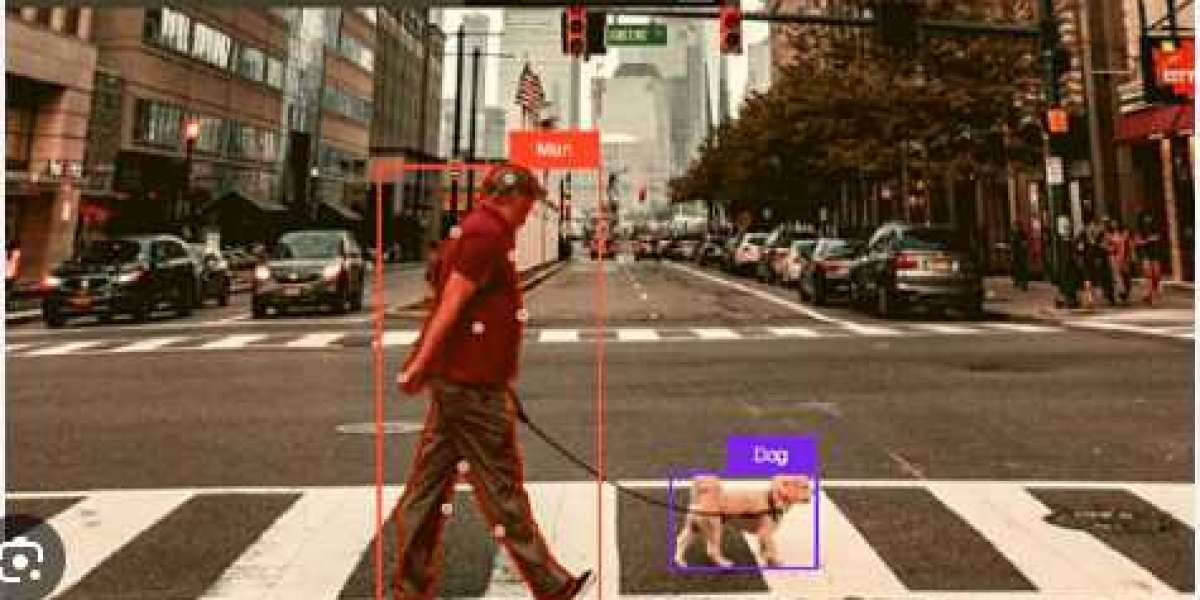Image Recognition Market: A Comprehensive Analysis
Market Overview
Image recognition technology is at the forefront of the digital revolution, transforming how businesses and individuals interact with visual data. Leveraging artificial intelligence (AI) and machine learning (ML), image recognition systems can identify, classify, and analyze images with remarkable accuracy. This technology finds applications across various sectors, including retail, healthcare, automotive, and security, driving its substantial market growth.
The Image Recognition Market is projected to grow from USD 35.218 billion in 2024 to USD 116.94 billion by 2032, exhibiting a compound annual growth rate (CAGR) of 16.18% during the forecast period (2024 - 2032). The rapid expansion of this market is driven by advancements in AI, increasing smartphone penetration, and the growing need for effective data management solutions.
Request To Free Sample of This Strategic Report - https://www.marketresearchfuture.com/sample_request/1315
Key Market Segments
The image recognition market can be segmented based on component, deployment mode, application, and region.
1. By Component
- Hardware: This includes devices and sensors used for capturing and processing images, such as cameras and specialized image processing units.
- Software: Image recognition software solutions that use algorithms to identify and analyze visual data.
- Services: Consulting, integration, and support services that assist businesses in implementing and optimizing image recognition solutions.
2. By Deployment Mode
- On-Premises: Image recognition solutions deployed within an organization's infrastructure for enhanced security and control.
- Cloud: Cloud-based image recognition solutions offering scalability, flexibility, and cost-efficiency.
3. By Application
- Retail and E-commerce: Used for visual search, inventory management, and personalized marketing.
- Healthcare: Assists in medical imaging, diagnostics, and patient monitoring.
- Automotive: Enhances driver assistance systems, vehicle recognition, and autonomous driving technologies.
- Security and Surveillance: Facilitates facial recognition, threat detection, and access control.
- Others: Includes applications in media and entertainment, agriculture, and manufacturing.
Industry Latest News
The image recognition market is dynamic and continually evolving, with significant advancements and trends shaping its future:
- AI and Deep Learning Advancements: Recent developments in AI and deep learning have significantly improved the accuracy and efficiency of image recognition systems. These technologies are enabling more sophisticated and real-time image analysis.
- Integration with IoT: The convergence of image recognition with the Internet of Things (IoT) is opening new avenues for smart applications, such as smart homes, smart cities, and industrial automation.
- Expansion in Healthcare: The use of image recognition in healthcare is expanding, with AI-driven diagnostic tools improving the accuracy and speed of medical imaging analysis.
- Facial Recognition Technology: Despite concerns over privacy, facial recognition technology is gaining traction in security, retail, and entertainment sectors for identity verification and personalized experiences.
- Augmented Reality (AR) and Virtual Reality (VR): Image recognition is a critical component in AR and VR applications, enhancing user experiences in gaming, retail, and training simulations.
Key Companies
Several key players are driving innovation and growth in the image recognition market:
- Google LLC: A leader in AI and machine learning, Google offers advanced image recognition solutions through its Google Cloud Vision API.
- IBM Corporation: IBM's Watson Visual Recognition uses AI to analyze images for various applications, including retail, healthcare, and security.
- Microsoft Corporation: Microsoft Azure's Computer Vision API provides robust image recognition capabilities for developers and businesses.
- Amazon Web Services (AWS): AWS Rekognition is a powerful image and video analysis service that offers facial recognition, object detection, and scene analysis.
- Adobe Systems Incorporated: Adobe Sensei integrates image recognition into its creative cloud suite, enhancing photo editing and content creation.
- NEC Corporation: Known for its advanced facial recognition technology, NEC provides solutions for security, retail, and public safety.
Market Drivers
Several factors are driving the growth of the image recognition market:
- Technological Advancements: Continuous improvements in AI, ML, and deep learning are enhancing the capabilities and applications of image recognition technology.
- Increasing Smartphone Penetration: The widespread use of smartphones with high-quality cameras is generating vast amounts of visual data, driving the demand for image recognition solutions.
- Growing Need for Efficient Data Management: As businesses generate and collect more visual data, the need for efficient image recognition and analysis solutions is increasing.
- Rising Demand for Security Solutions: The growing need for advanced security and surveillance solutions is boosting the adoption of facial recognition and threat detection technologies.
- Enhanced Customer Experiences: Image recognition is being used to personalize customer experiences in retail, e-commerce, and entertainment, driving its adoption.
Ask for Customization - https://www.marketresearchfuture.com/ask_for_customize/1315
Regional Insights
The image recognition market exhibits diverse growth patterns across different regions:
1. North America
North America holds the largest share of the image recognition market, driven by the presence of major technology companies, high adoption of AI, and significant investments in RD. The region's strong focus on security and surveillance, along with the rapid growth of e-commerce, further fuels market expansion.
2. Europe
Europe is a significant market for image recognition, with strong adoption in sectors like automotive, healthcare, and retail. The region's emphasis on technological innovation, coupled with supportive government initiatives, is driving market growth. Countries like Germany, the UK, and France are leading in the adoption of image recognition technologies.
3. Asia-Pacific
The Asia-Pacific region is experiencing the fastest growth in the image recognition market, fueled by the rapid adoption of smartphones, increasing internet penetration, and growing investments in AI and IoT. Countries like China, Japan, and India are at the forefront of this growth, with significant advancements in retail, healthcare, and security applications.
4. Latin America
Latin America shows steady growth in the image recognition market, particularly in the retail and e-commerce sectors. The region's increasing focus on enhancing customer experiences and improving security measures is contributing to market expansion.
5. Middle East and Africa
The Middle East and Africa are emerging markets for image recognition, with growing investments in smart city projects, security, and healthcare. The region's focus on technological innovation and infrastructure development is expected to drive market growth in the coming years.
image recognition market Market Highlights:


